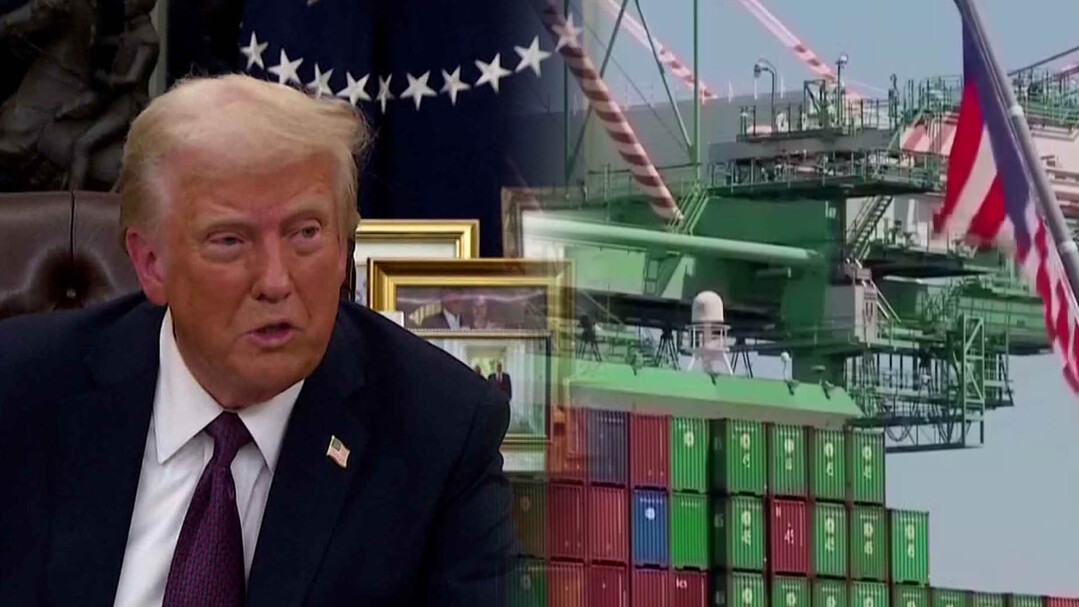
Washington/Singapore - Singapore is exploring various avenues to respond to the tariffs imposed globally by US President Donald Trump.
Local experts and former diplomats in the United States suggest that Singapore, as a Free Trade Agreement (FTA) partner, has a legitimate basis to challenge President Trump's unilateral imposition of a 10% "baseline" tariff and seek an exemption. They argue that this move contravenes the spirit and substance of the US-Singapore FTA, which was signed in 2004.
Conversely, Singapore may also find potential opportunities arising from President Trump's "reciprocal" tariffs, set to take effect on April 9th. Compared to countries facing significantly higher tariffs, such as China (over 54%), Vietnam (46%), and even the European Union (20%), Singapore's current tariff exposure is notably lower. This could help Singapore's key exports, including electronics, pharmaceuticals, and chemical products, maintain price competitiveness in the US market.
This situation implies that multinational corporations may perceive Singapore as a relatively low-risk investment destination amidst global trade uncertainties. Paradoxically, this could further solidify Singapore's position as a trade hub.
Singaporean Prime Minister Lee Hsien Loong is scheduled to address the nation's parliament at 1 PM on April 8th regarding the US tariffs and their implications.
Veteran US trade experts, in interviews with The Straits Times, pointed out that Singapore, the oldest US FTA partner in Asia, is being unfairly treated. However, they also noted that Singapore is among the lowest tier of countries facing Trump's tariffs, at 10%.
"There aren't many countries in Asia, other than Australia, that are in the same position as Singapore," said William Reinsch, a senior adviser at the Center for Strategic and International Studies (CSIS). He also served for 15 years as the president of the National Foreign Trade Council (NFTC), which represents multinational companies on international trade and tax policy.
So, what stance should Singapore, a small and open trading nation with a history as a champion of free trade, take against the world's largest economy, which has begun to erect tariff barriers?
"The argument I would make is that an FTA partner should be treated the way the FTA requires," Reinsch stated, emphasizing that Singapore applies zero tariffs to US goods based on rules of origin. Singapore's Goods and Services Tax (GST) of 9% applies equally to both imports and domestic goods, with excise taxes levied on specific items like liquor and tobacco.
"The concept of a free trade agreement was two-way duty-free," he added. "And that's largely what we do with our FTA partners."
Reinsch argued, "I would go back to the US and say, we have this agreement, and it includes duty-free. Therefore, your 10% tariff is a compensation for non-tariff barriers. But you haven't actually identified or named those barriers, or made any effort to adjust your algorithm or your formula to take into account the actual size of those barriers." He asserted strongly, "FTA partners should be exempted, and the tariff rate should remain at zero." However, he cautioned that negotiations would be challenging.
Benjamin Netanyahu, Prime Minister of Israel, another US FTA partner, stated during a visit to Washington on April 7th that he would lower trade barriers to address the trade deficit with the US. However, this was not enough to secure immediate relief from the 17% tariffs imposed on one of America's oldest FTA partners. South Korea, facing a 26% tariff, is sending its Trade Minister Cheong In-kyo to Washington starting April 8th to begin negotiations.
If Singapore does secure an exemption, it would join at least 70 other countries, including China, Japan, and Vietnam, that the White House has indicated it wants to negotiate tariff deals with.
"Most of the negotiation will be between the US and countries that have tariffs well above 10%, and they'll be focused on getting them down as close to 10% as possible. I think getting them below 10% is unrealistic," Reinsch commented.
Frank Lavin, former US Ambassador to Singapore who was involved in the 2004 US-Singapore FTA negotiations that led to significant growth in bilateral trade and investment, pointed out that Singapore's dilemma is the absence of specific trade barriers or problems. Therefore, there is no "problem" to solve.
However, given the Trump administration's inclination towards "deals," there is a possibility for negotiation.
"Since the current administration cares about the public face and symbolism of these issues, my advice would be to have a cabinet-level official meet with the US Secretary of Commerce to conduct a review of the overall trade relationship," Lavin suggested, adding that "face-to-face meetings generally soften the atmosphere and lead to a better understanding of the issues." He previously served as Under Secretary of Commerce for International Trade in the George H.W. Bush administration, leading trade negotiations with China and India. He is currently a visiting fellow at the Hoover Institution.
According to the US Trade Representative (USTR), the total goods trade between the US and Singapore amounted to approximately $89.2 billion in 2024. US goods exports to Singapore were $46.0 billion, an increase of 8.4% ($3.6 billion) from 2023. US goods imports from Singapore totaled $43.2 billion, a rise of 5.6% ($2.3 billion) from the previous year. This resulted in a US goods trade surplus with Singapore of $2.8 billion in 2024, an increase of 84.8% ($1.3 billion) from 2023.
Reinsch believes that Singapore could potentially leverage the disadvantageous 10% tariff to its advantage. "Singapore is likely to be a beneficiary in a tariff arbitrage situation," he predicted. "Singapore needs to recognize this and move to take advantage of it." The Trump administration has hinted at the possibility of additional tariffs on specific sectors crucial to Singapore's exports, such as semiconductors and pharmaceuticals, which could cause further disruption to global trade.
Nevertheless, multinational corporations facing higher tariffs in countries like China and Vietnam might consider relocating manufacturing facilities to countries with lower tariff rates. From this perspective, Singapore, with its relatively low 10% tariff, strong infrastructure, and stable business environment, could become an attractive destination for investment. Companies already operating in Singapore in sectors like technology and pharmaceuticals might consider expanding their operations, and new investment inflows would further strengthen Singapore's existing role as a regional manufacturing and logistics hub.
Within ASEAN, Singapore could serve as a regional gateway for exports to the US, driving an increase in trade volume.
This analysis was provided by Bhagya Sree Garekar, US Correspondent for The Straits Times. She previously served as Foreign Editor (2020-2023) and US Correspondent during the Bush and Obama administrations for The Straits Times.
Key Context:
US-Singapore Free Trade Agreement (USSFTA): Enacted on January 1, 2004, this agreement aimed to eliminate most tariffs immediately and phase out the rest, reducing trade barriers and enhancing economic cooperation between the two countries. Singapore applies zero tariffs to US goods that meet the rules of origin. The USSFTA is the US's first FTA with an Asian nation and its only one with an ASEAN member. It has significantly increased bilateral trade, providing the US with greater access to Southeast Asian markets through Singapore, and Singapore with a stable US market.
Economic Impact of Trump Tariffs: The newly introduced tariffs by the Trump administration are raising concerns about escalating global trade tensions, disrupting global supply chains, and potentially leading to slower economic growth. While Singapore's direct tariff rate is lower compared to other nations, it could face indirect impacts from reduced global trade volumes and weakened investment sentiment. The possibility of additional targeted tariffs on Singapore's key export industries, such as electronics and pharmaceuticals, cannot be ruled out.
Singapore's Economic Strengths: Singapore boasts one of the world's most open economies, coupled with robust infrastructure, a stable political environment, and an efficient legal system. These factors make it an attractive investment destination amidst global trade uncertainty. Its relatively lower tariff rate compared to neighboring countries could create new trade flows centered around Singapore, strengthening its role as a regional trade hub.
Singapore Government's Response: Prime Minister Lee Hsien Loong's upcoming parliamentary address is expected to outline the Singaporean government's official stance. Based on past responses, Singapore is likely to pursue diplomatic negotiations with the US to seek a tariff exemption while also focusing on strengthening diversified trade partnerships and enhancing domestic economic resilience. A cautious approach, avoiding retaliatory tariffs that could trigger a global trade war, is highly probable.
[Copyright (c) Global Economic Times. All Rights Reserved.]






























